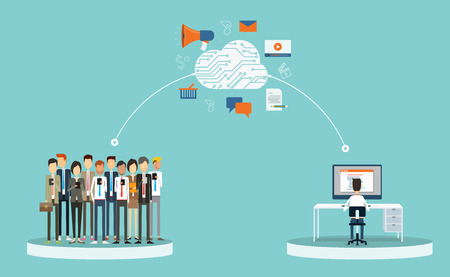 The first question of course is “What is a connection based economy?”
The first question of course is “What is a connection based economy?”
It stems from the growing impact of people not liking being sold to, though they love to buy. This in itself is not a new idea. But the truth is, we live in a world where communication is largely-funded by advertising, and we are overwhelmed by flood of promotional materials constantly. So it isn’t surprising to see that we are becoming more and more unresponsive.
The Millennials, the group of people born between the early 80s and mid to late 90s and early 2000s, are particularly sensitive. They can spot when they are being sold to a mile off and it is a huge turn off for them.
This ‘problem’ has given birth to a new way of doing business, which is the ‘connection based’ model, which many businesses, or any size, can adopt and adapt. In an odd sort of way, it’s not really a way to do business, it’s a way to facilitate business.
Humans are connection machines
Humans are very good at communication, it’s essentially what we are built to do. As part of that, we are very good at connecting things. The idea of a connection based economy is one where the effort is focused on helping your customers connect with one another.
Take Uber for instance. Their business model has no physical assets, it relies on providing a service where two groups of people come together to do business – people who want to get others from A to B and those who need to get from A to B.
The online take-out food services are another example – companies like Deliveroo and Just Eat. These services allow you to connect two groups of people to each other. It connects people who want restaurant food without going out for it and the restaurants who want their food to reach more people.
This is one reason why the market for smartphone applications has grown exponentially over the past few years; Candy Crush acknowledged of course. Smartphone applications are an easy-access, convenient way of communicating and connecting with others without location or time being an issue.
Food For Thought
Our business world and the ways people do business is evolving at a rate which few can keep up with, but those that do stand to reap huge rewards.
The challenge is to step back and reassess your own business and how it interacts with customers. Look closely at how your market is evolving and in particular how the technologies your customers are using can lead to new ways you can do business.
This may open up opportunities where developing an environment based on your particular market expertise can lead to you benefiting from simply facilitating other people’s businesses.
So embrace the connection based economy.
